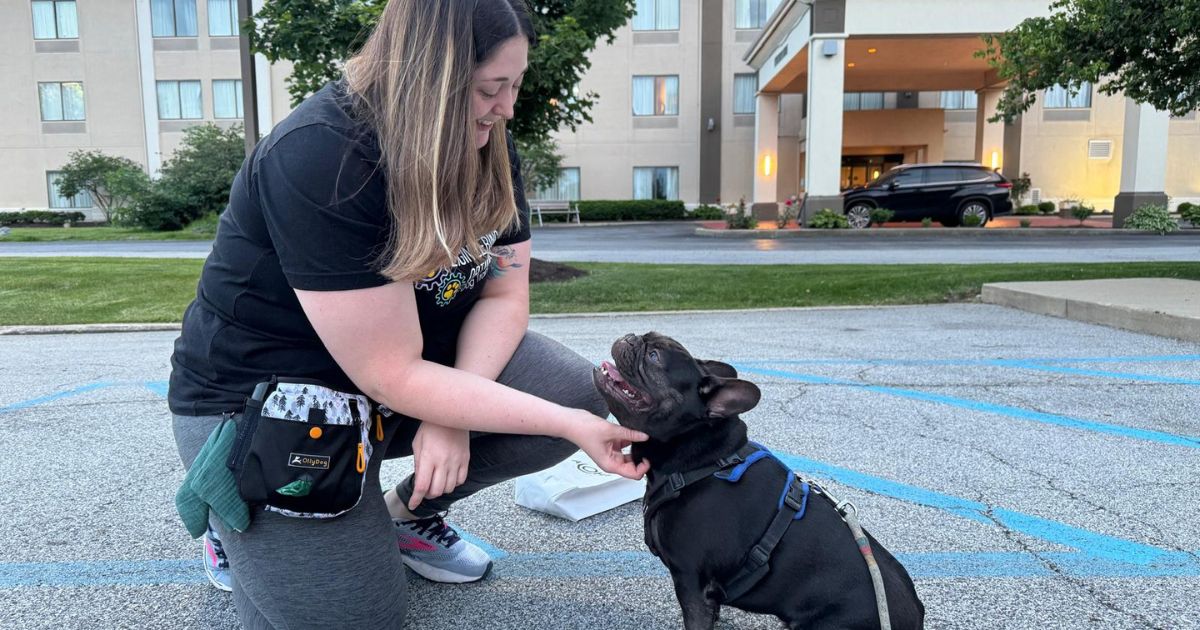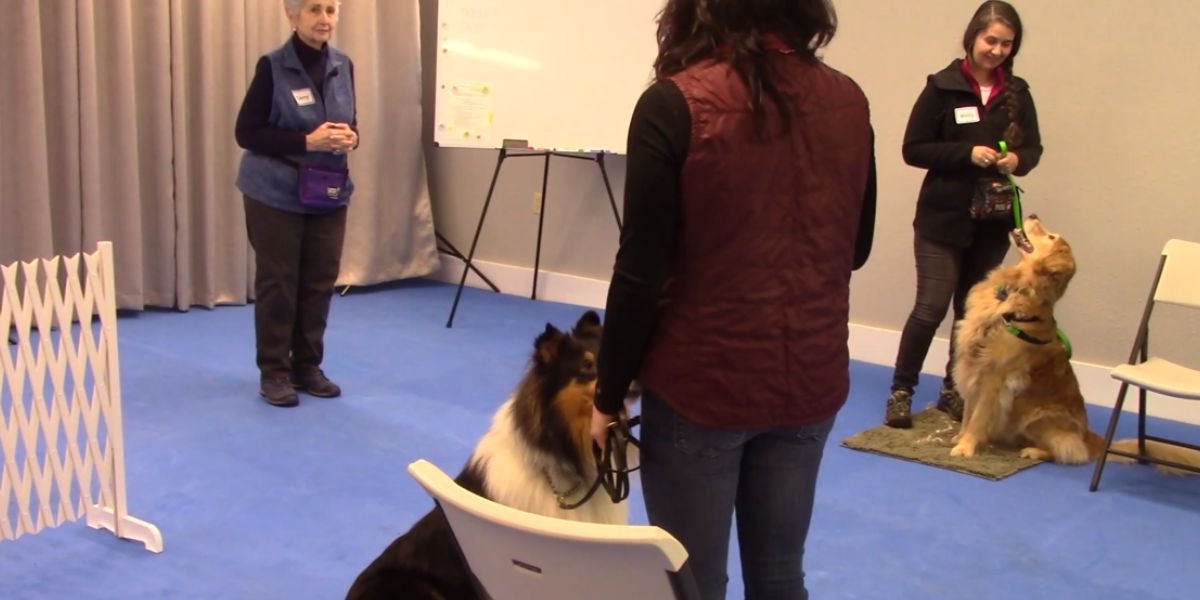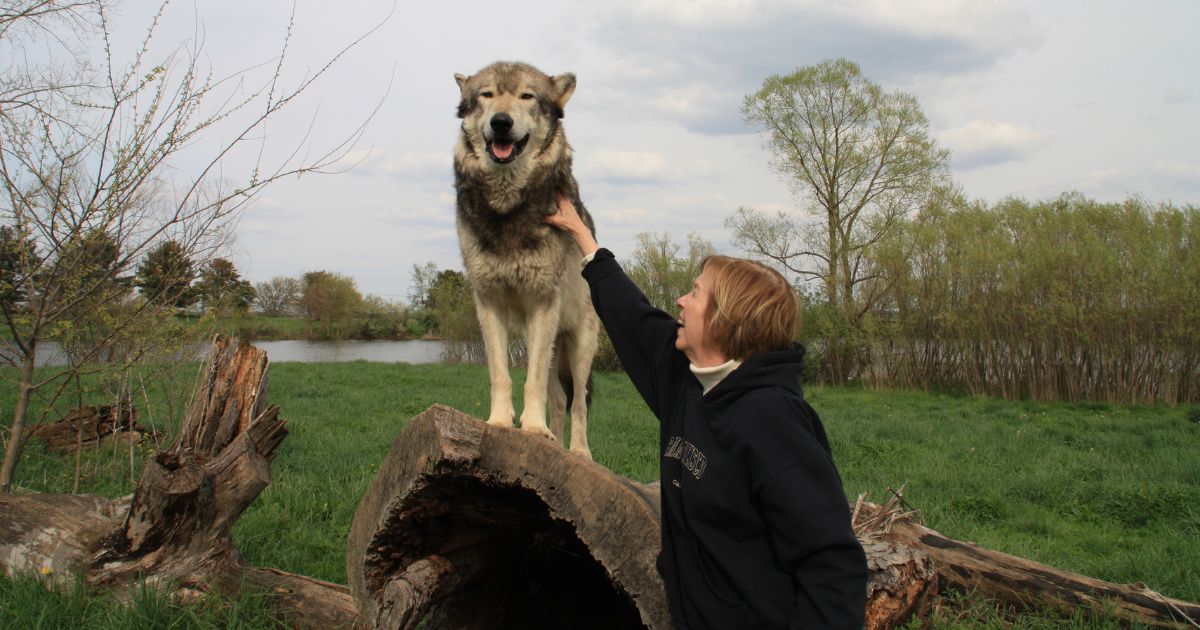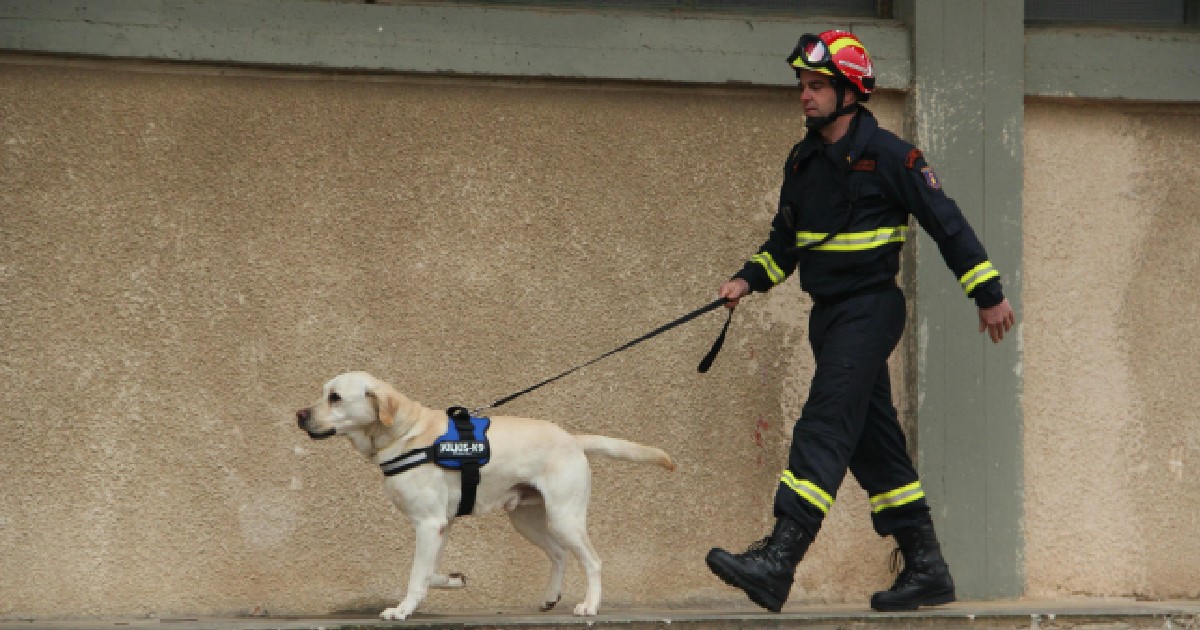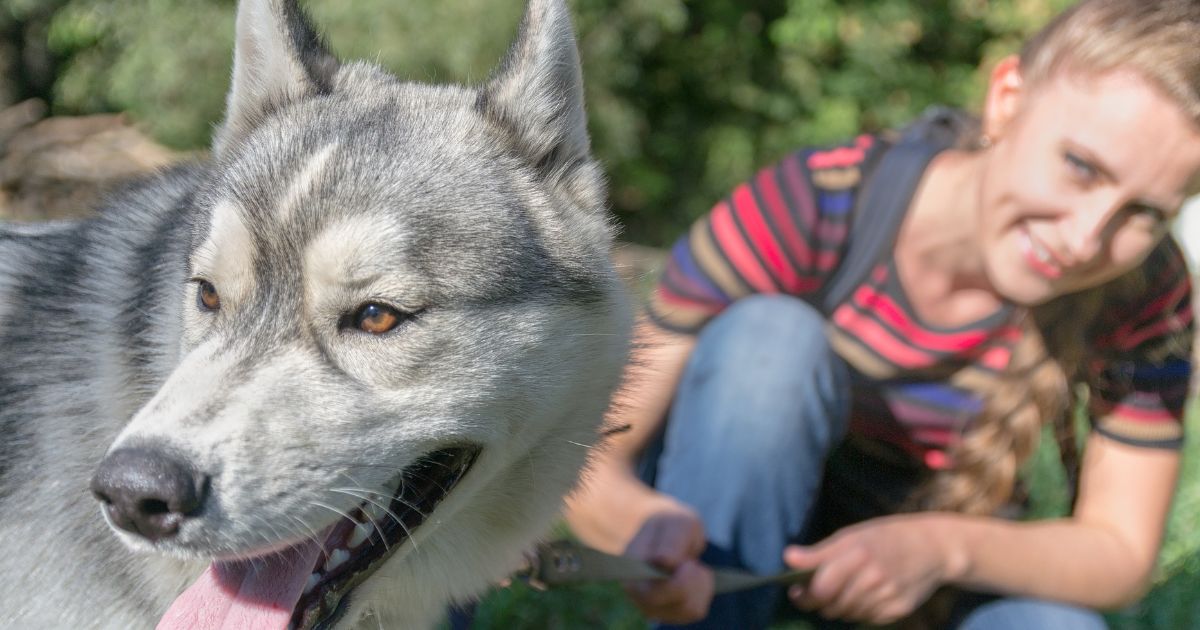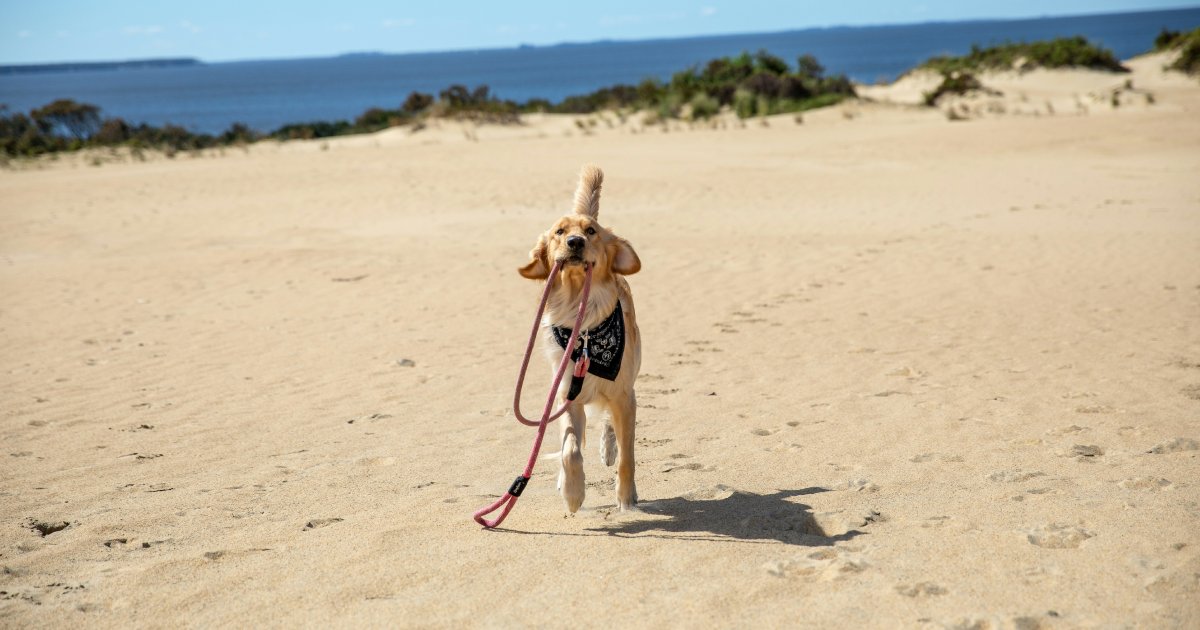It’s no secret that small dogs are, well, smaller. We often place them in a category of their own, apart from larger dogs, but small dogs and large dogs are the same species, so the same concepts apply. There are some special considerations that we might make with small dogs since their size does sometimes put them at a disadvantage …
I Spy… Fun Group Dog Training Classes
Terry Ryan is known for her pithy wisdom, patience, and signature classes that are creative, fun, and effective. Her training games help improve the performance of both canine and human students. Among these engaging training techniques is a playful yet purposeful game that exemplifies her training philosophy. The game, I Spy, is based on the children’s guessing game. It is …
How to Know If Enrichment Is Actually Enriching
So, you want to provide enrichment for your pet or your clients’ pets. Awesome! Welcome. One of the questions we at Pet Harmony get asked frequently is, “How do I do it?” It seems easy at first: let your dogs sniff, give your birds something to shred, give your cats something to pounce on, and provide them with all food …
On Being a Changemaker
So you’ve become a clicker trainer! Naturally you are very excited. You want other people around you to stop using punishment-based methods and start clicking. So you introduce the clicker at your dog club or high school or wherever you are using it. And guess what: people not only don’t change, they get mad at you.
Ignorance Is Bliss: Real-World Use of Modifiers with a Search & Rescue Dog
A search-and-rescue start Sometimes trainers venture into uncharted training territory without realizing how novel or new it might be. I have been teaching a graduate course on animal training at Western Illinois University since 1995. One of the students in my very first class was a firefighter named Bill, who also trained search and rescue dogs. Throughout the semester, he …
The Jackpot Mystique: Tool or Trainer Superstition?
A perplexing tool As I travel around the world lecturing about training, there are certain questions that come up again and again. The end-of-session signal, the keep-going signal, the least-reinforcing stimulus/scenario, and jackpots seem to create the most confusion. Perhaps this is because information about these concepts is not readily available in the scientific literature. These are tools that have come from …
Food Lures and Training
Luring is legal Let me start by saying that if you decide to use a food lure, you are NOT committing a “training felony,” and the “’lure police” will not be knocking on your door. I would choose lure-and-reward training over any training involving aversives. That said—is luring the most efficient training? I’ll make my case that it is not. Luring = …
When Good Training Goes Badly: Troubleshooting Your Training
Training troubles We all have “off” days when a training session isn’t going as well as we had hoped. Perhaps the dog is distracted, unfocused, or simply wanders off. Maybe the dog just stands there staring or barking at you instead of offering behavior. If your dog has been making progress in a training session and you start noticing a displacement behavior, such as yawning, …
When Training Is Too Much Fun
A Mysterious Change in Behavior A few years ago, a search-and-rescue trainer named Sharon asked me to help problem-solve a perplexing case. Her dog, an energetic five-year-old Lab mix named Carson, suddenly stopped alerting when he found a person during search trials. Sharon and Carson were a FEMA-certified team that successfully found and helped rescue dozens of people over a …
1, 2, 3, 4 . . . Can Dogs Count?
I’ve always been fascinated by the cognitive abilities of animals. I used to teach a graduate course on animal intelligence. The popularity of the course was indicative of how interested people are in this topic. Throughout my career I’ve been fortunate to work on a number of cognitive studies. I’ve co-designed studies on echolocation in dolphins, on match-to-sample1 with a …
Reducing Leash Reactivity: The Engage-Disengage Game
Sound familiar? The 4 Fs of fear Many dogs struggle to stay relaxed when they see another dog, a person, or a specific environmental stimulus, and end up reacting with an intense stress response. Stress responses can be categorized into fight (such as barking, lunging), flight (such as avoiding, hiding), freeze (such as cowering, shutting down), or fool around (such as …
Overly Excited Greetings: the Good, the Bad, and the Ugly
Howdy When someone mentions a “spaghetti western,” the mental picture is of an actor’s lips moving out of sync with the words coming from the film’s audio sound. Watching dogs go crazy on the end of a leash while they are trying to greet other dogs or people is akin to watching an old spaghetti western. The dog and the …
- Page 1 of 2
- 1
- 2
